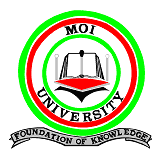The department of electrical and communications engineering has two undergraduate degree programmes a Diploma in computer engineering (Dip.CE), a Postgraduate Diploma in computer science and computer and instrumentation centre.
It was established to cater for the growing need in the country for highly qualified technical man-power in the area of Electrical and Communications Engineering.
This curriculum lays emphasis on basic sciencesand mathematics in the beginning, followed by technical courses incorporating the main branches of electronics, telecommunications, instrumentation, control engineering, microprocessor systems and applications, electrical machines, electrical power engineering. The main thrust of the curriculum is the development of practical proficiency with sound theoretical basis.
The practical proficiency is achieved through extensive laboratory training, seminars, engineering projects, workshop practice, industrial visits, and industrial attachments.
Bachelor of Technology in Electrical and Communications Engi Program Offered at Moi University
Moi University (Moi Uni)
Uasin Gishu County
Bachelors Degree 5 Years Fulltime Fee: on application Intake: Ongoing
